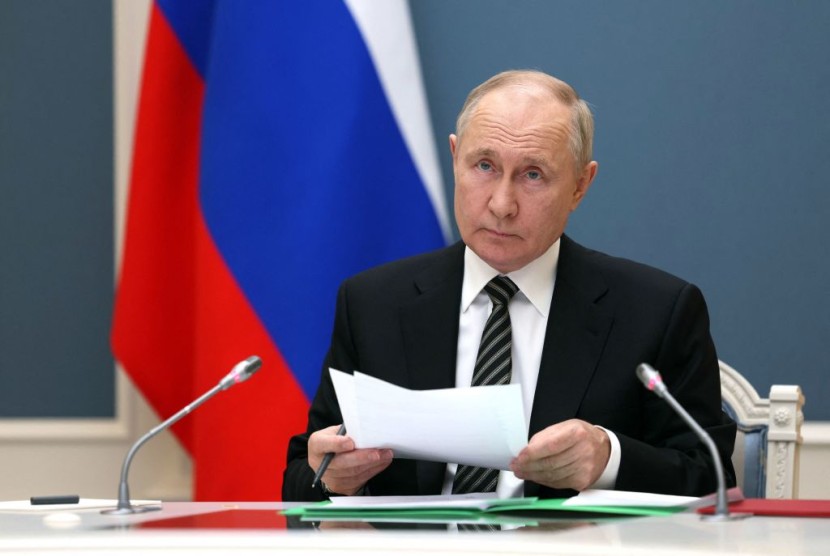President Vladimir Putin is set to embark on a diplomatic tour, visiting the United Arab Emirates and Saudi Arabia on Wednesday, followed by hosting Iranian President Ebrahim Raisi in Moscow.
This tour underscores Russia's strategic positioning amid growing international tensions and its role in the ongoing Israel-Hamas conflict, as per Al Jezeera.
Putin's UAE, Saudi Visits Amid ICC Warrant

Putin's visit, primarily centered around bilateral relations and the Israel-Hamas war, comes at a time when prospects for a ceasefire in Gaza are diminishing. Kremlin spokesman Dmitry Peskov outlined the agenda for the talks, emphasizing their focus on the geopolitical dynamics in the region.
The Russian president's international travel has been limited and an arrest warrant has been issued by the International Criminal Court in March, accusing him of the unlawful deportation of Ukrainian children.
Putin's global engagement has been seriously damaged by the accusation, resulting in his decision to avoid a summit in Pretoria due to concerns over potential arrests. The upcoming visits to the UAE and Saudi Arabia, which have not signed the ICC's founding treaty, present an opportunity for Putin to engage in international diplomacy without the threat of arrest.
Russia's relationship with Hamas, often viewed as a terrorist group by Western countries, plays a crucial role in its Middle Eastern strategy. Moscow's open communication with Hamas, including frequent delegations, contrasts with the West's more cautious approach.
This has positioned Putin to potentially mediate in the ongoing conflict, especially as efforts by Qatar, a key Western ally, have stalled, according to The Guardian.
Iran's Gulf Relations and Hamas in Key Talks
The talks with Iranian President Raisi hold of equal importance. Iran's efforts to garner backing from Gulf states for Hamas and implement sanctions against Israel have proven unsuccessful. Moreover, Iran's alleged involvement in the Red Sea attacks and its support for Russia in the Ukraine conflict have heightened tensions with Western nations. These issues are likely to be central in Putin's discussions with Raisi.
Russia's re-entry into global politics through its Middle East diplomacy represents a strategic move. By maintaining ties with both Israel and Hamas, Russia emerges as a potential mediator in the region. Moscow's criticism of the US's solo mediation efforts and accusations of Western double standards further underscore its intent to position itself as a key player in international affairs.
Putin's visit also includes important economic discussions. In Saudi Arabia, he is set to meet Crown Prince Mohammed bin Salman to discuss trade, politics, and humanitarian aid. The UAE discussions with Sheikh Mohamed bin Zayed Al Nahyan will cover trade, energy, tourism, and education.
This diplomatic initiative by Putin is not just about addressing the immediate issues in the Middle East but also about reasserting Russia's global role. By engaging with key regional players and presenting itself as a mediator, Russia is navigating a complex international landscape, marked by its own contentious actions in Ukraine and strained relations with the West, Associated Press reported.








